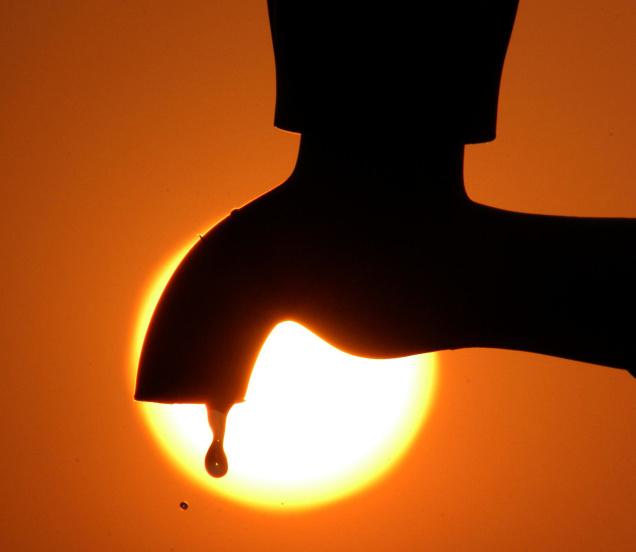
Did you know it takes about 1,500 litres of water to produce one kilogram of wheat, and 10 times that amount — 15,000 litres — to produce the same amount of beef?
The United Nations is drawing attention to numbers like these as it marks World Water Day Thursday.
As the world’s population grows, so too does the global demand for food and water. This year’s theme, water and food security, highlights the global need to produce food with less water.
Consider this:
If you take a whole-wheat bun from Saskatchewan, add an all-beef patty from Alberta, and top it off with some slices of Ontario cheese, you’ll end up with a hamburger that required 2,400 litres of water, according to Canada Water Week.
Even though a person needs to drink about 3 litres of water each day, the amount that goes into producing daily food intake worldwide is between 2,000 litres and 5,000 litres. In fact, about 90 per cent of the water a person consumes comes from the food they eat or the water used to make it.
And, the average water footprint for a Canadian is 6,392 litres a day — that’s the total volume of freshwater used to produce the goods and services we consume.
Here’s the down low on H2O:
70 per cent of the world’s water is used for agriculture
1,755 litres of water required to make one sausage.
160 litres of water is used to produce one large banana
230 litres of water are used to make one 200-ml glass of apple juice.
1,040 litres of water are used for 1 kg of potato chips
50 litres of water is used to produce one tomato; about 530 litres to produce 1 kg of tomato ketchup
500 litres of water goes into producing 100 grams of cheese
1,260 litres of water goes into one margherita pizza
120 litres of water is used to make a 125-ml glass of wine
74 litres of water is used to make a 250-ml glass of beer
30 litres of water is required to grow enough tea leaves to make a single cup of tea
30 percent of the food produced worldwide is lost or wasted every year.
50 per cent reduction of food losses and waste at the global level would save 1,350 cubic kms of water a year. (By comparison, the volume of Lake Ontario is 1,640 cubic kms.)
Sources: United Nations, Canada Water Week, Water Footprint Network and One Drop.
Reduce waste, recycle food, reuse water and review menu planning.
Those are some words of advice from Montreal chef François Martin, director of food services at Cirque du Soleil.
“Don’t waste food,” implores the chef, noting that tossing out food items is akin to wasting countless litres of water.
He suggests crumbling up old muffins and re-using them to bake a cake or a fresh batch; recycling leftover Shepherd’s Pie into a soup; and saving the water used to cook pasta and reusing it in soups, bouillons and sauces.
Carefully planning upcoming meals before going grocery shopping should help cut food waste, he says. That is, provided that you don’t end up eating out for dinner.
Martin became aware of his water footprint after getting involved with ONE DROP, a non-governmental organization started by Cirque founder Guy Laliberté that is committed to fighting poverty by supporting access to water.
Martin says he’s become much more conscientious about his water use and food consumption, opting to use more grains and cereals in his recipes because their production requires less water.
To help mark World Water Day, Martin developed low-water recipes for ONE DROP as part of an initiative called, ‘There’s Water on Our Plates.’ The awareness campaign is aimed at making people aware about their food choices and promoting eco-friendly food behaviours.
No comments:
Post a Comment